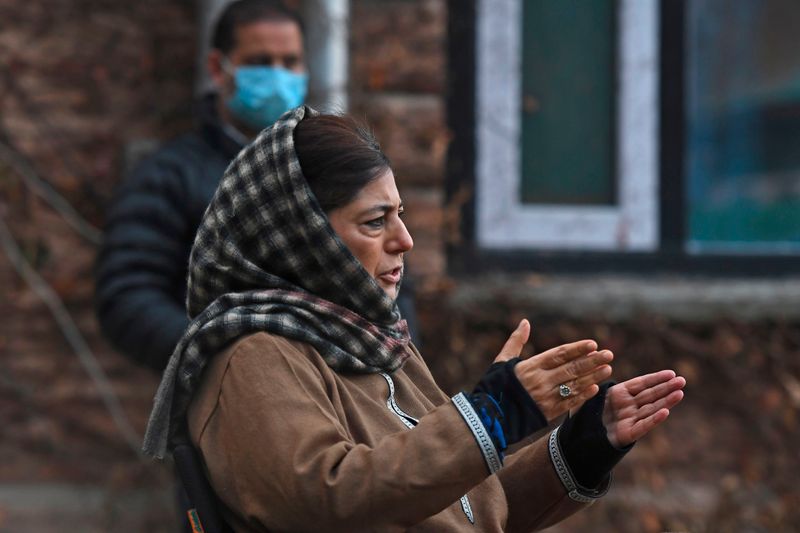Mehbooba Mufti, 61, former chief minister of the erstwhile state of Jammu & Kashmir (now a Union Territory), headed a government with BJP support.
After keeping her in confinement for over a year (August 2019 to October 2020) following the reading down of Kashmir’s special status in the Indian constitution, she was released in October this year. Several members of the BJP have called her a “terrorist”.
This is one of the most candid and unflinching interviews that Mufti has given to any media outlet.
Q: You were kept in captivity for over a year, the longest detention of any Kashmir leader. What was the experience like?
Mehbooba Mufti: It was both surreal and suffocating. For the first three weeks I was completely cut off from my family and the world with no news whatsoever. That was the toughest phase. I was given a room on the first floor of a government hut while the ground floor was occupied by an entire contingent of security guards. Being watched over all the time made me feel like a criminal.
Q: I was in touch with your daughter. How did your family deal with your confinement?
My mother and daughter watched helplessly as I was taken away by police officers. The worst part was when they refused my family members to contact me. That was the time I saw a different side to my daughter who faced and fought it all by herself. Little did I know that she was talking to the press and fighting for my freedom.
Q: The BJP government repealed Article 370 which gave Jammu & Kashmir a special status in the Indian Union. Do you ever see the Article returning?
Nothing is set in stone, especially this move by the BJP government that violated our constitution. They had no right to trample over our dignity. Undoubtedly this is going to be long and arduous political battle. But it is one I will fight.
Q: The Jammu & Kashmir is now a Union Territory (UT). What do you think of both these legislations?
Downgrading our status — from a state to Union Territory — was done intentionally to shift goalposts. This is the first case in independent India where a state has been demoted to a UT.

Image Credit: AFP
Q: The special status of Jammu & Kashmir seems to be history. How does that impact your politics?
J&K’s special status was given by the Indian constitution and not by any political party. Earlier my party was fighting for the peaceful resolution of J&K. Scrapping of Article 370 has further complicated the issue but the tragedy is that J&K is being used as a political tool.
Q: You are blamed for allowing BJP in the valley by allying with it and forming a government. Your response to this charge?
The last J&K assembly elections saw a polarised and fractured mandate in 2014. A party like ours, already accused of being Kashmir-centric, had to respect the mandate of the people and go along an inclusive government. Also having worked with Vajyapee ji, Mufti sahab thought BJP would take forward the process of dialogue and reconciliation. Our agenda of alliance too was very clear about J&K’s special status and the need to hold dialogue with all stakeholders including Pakistan.
Q: Both you and the National Conference have come together and your parties have done well in the recent District Development Commission (DDC) polls. What next?
I’m grateful to my party cadre who worked hard to ensure our success in the DDC polls even after the People’s Alliance for Gupkar Declaration (PAGD) didn’t get a level playing field. PDP witnessed a split orchestrated by the government but despite that we did well. PAGD will sit together to decide the future course of action. Our objectives are clear i.e. restoration of J&K’s special status.
Q: What is the way forward in Kashmir?
My party’s vision for the resolution of J&K has always been dialogue, peace with dignity and reconciliation. Making borders irrelevant and Kashmir a bridge between India’s neighbours including Pakistan. Also opening up earlier trade routes and not only restoring Article 370 but granting J&K more powers. This is the only way forward.


